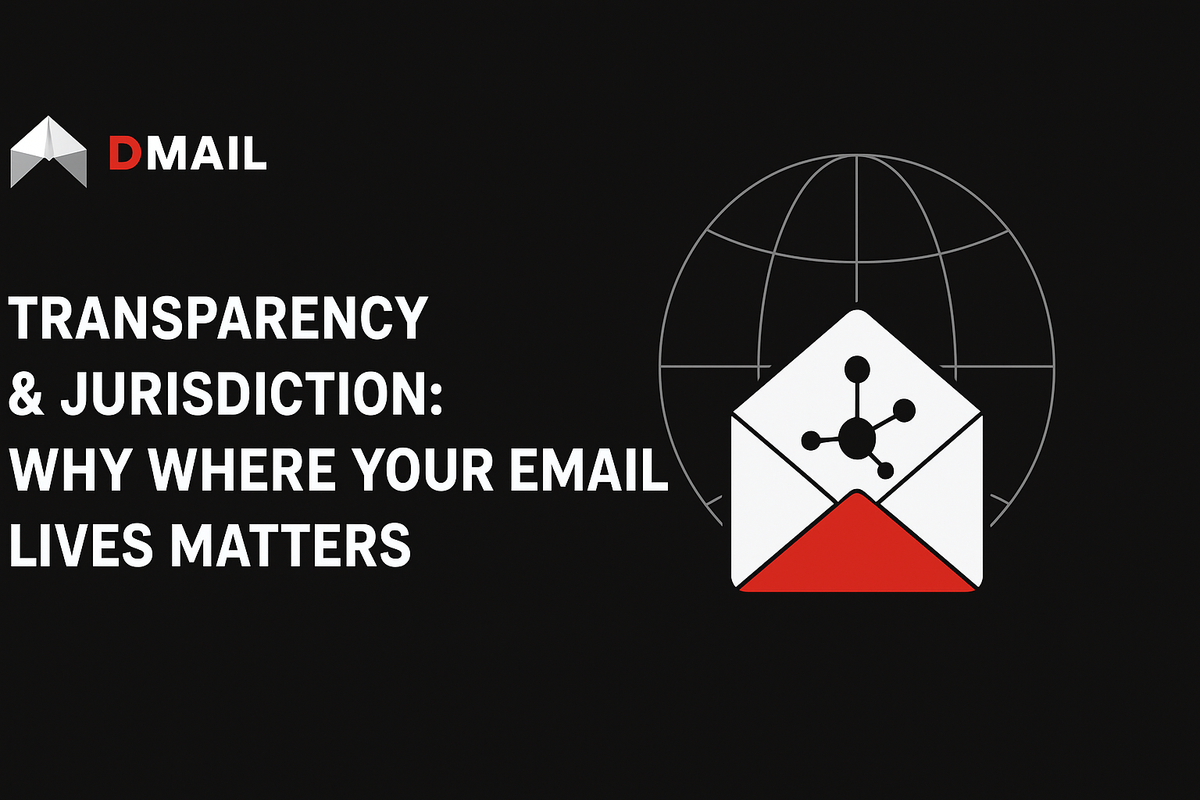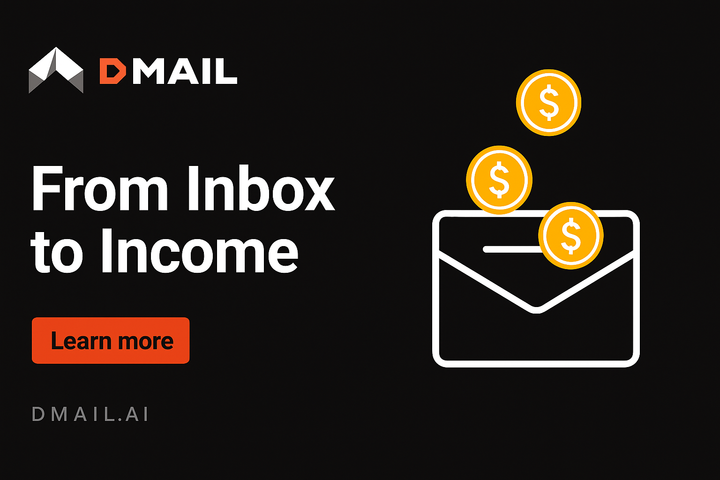Transparency & Jurisdiction: Why Where Your Email Lives Matters
Centralized email served its purpose. But the cracks are too deep to ignore. Surveillance, ads, breaches, censorship, jurisdictional pressures — the system is collapsing under its own weight.

Most people never think about where their email actually “lives.” It feels like magic — type, send, receive. But behind every message sits a server, inside a country, under a government’s jurisdiction. And that fact changes everything.
Because if your provider can be pressured, subpoenaed, or shut down, then your privacy and sovereignty aren’t yours. They belong to the jurisdiction your provider operates in.
Gmail: The American Model
Gmail is American. That means it falls under U.S. law — and with it, sweeping surveillance powers like the Patriot Act and FISA. Google complies with government requests for user data. Even if you never commit a crime, your inbox can be searched, profiled, and stored in government archives.
That’s not paranoia. That’s documented policy.
ProtonMail: The Swiss Illusion
ProtonMail markets Swiss jurisdiction as a shield. And yes, Swiss privacy laws are stronger than most. But stronger doesn’t mean absolute. In 2021, ProtonMail acknowledged that it had logged user IP addresses under court order, despite branding itself as “we don’t track.”
At the end of the day, the Swiss government still holds the keys. If they demand access, Proton must comply. It doesn’t matter how strong the encryption is if metadata and logs can be forced into the open.
The Real Problem: Centralization
Whether it’s Google in the U.S. or ProtonMail in Switzerland, the flaw is the same: centralization. Your data is stored in one place, controlled by one company, and governed by one legal system.
That means:
- One government can demand access.
- One provider can suspend your account.
- One breach can expose millions of users.
Your privacy isn’t yours. It’s rented.
DMAIL: Beyond Jurisdiction
DMAIL breaks free from the jurisdiction trap by building on Web3 infrastructure:
- No Central Servers
Messages are distributed and stored across decentralized networks. There’s no corporate office to raid, no single server to shut down. - No Single Jurisdiction
Because data isn’t tied to one country, no government can claim authority over your inbox. - On-Chain Transparency
Every rule, protocol, and transaction is verifiable. No black-box algorithms, no hidden logging, no marketing spin. - User Sovereignty
Your wallet is your key. If you control the key, you control the inbox. Full stop.
Why This Matters
In an era of rising surveillance, censorship, and data weaponization, where your email lives isn’t just a technical detail — it’s a matter of freedom. Gmail will always live in America. ProtonMail will always live in Switzerland. And both will always be subject to laws that put users second.
DMAIL doesn’t live in a country. It lives on-chain. It belongs to its users. And no government, no corporation, and no regulator can take that away.
The Migration Is Inevitable
Centralized email served its purpose. But the cracks are too deep to ignore. Surveillance, ads, breaches, censorship, jurisdictional pressures — the system is collapsing under its own weight.
The future of communication is borderless, decentralized, and transparent. It’s not about trusting a company. It’s about trusting code.
That’s why the migration to Web3 communication isn’t just an option — it’s inevitable. And that migration starts with DMAIL.

Connect with Dmail: Website | Twitter | Discord | Github | Telegram





Comments ()